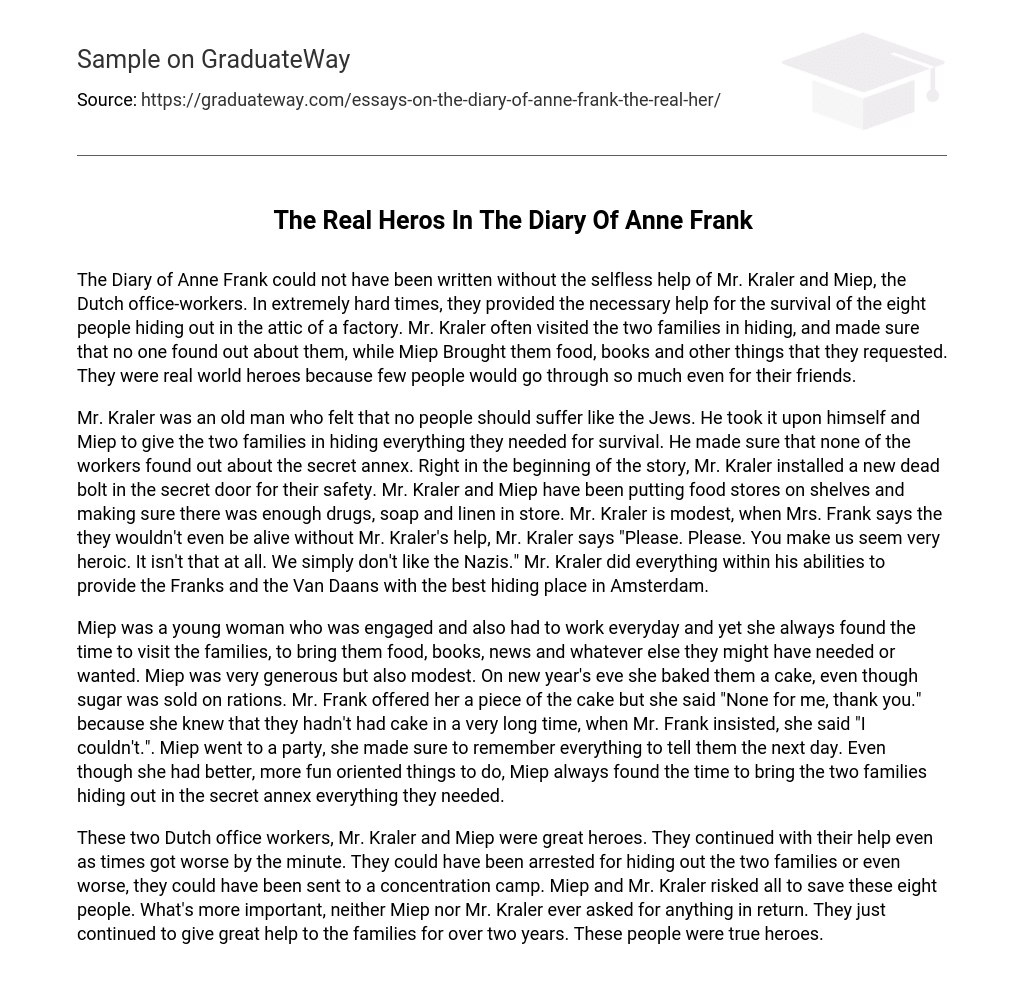The Diary of Anne Frank was made possible thanks to the altruistic assistance of Mr. Kraler and Miep, the Dutch office-workers. In extremely difficult circumstances, they offered the essential support required for the eight individuals concealed in the factory attic to survive. Mr. Kraler frequently visited the two hidden families, ensuring their secrecy from outsiders, while Miep delivered requested supplies such as food and books. Their actions exemplified true heroism, as not many would endure such hardships even for close acquaintances.
Mr. Kraler, an elderly man, shared a strong belief that no one should endure the suffering faced by the Jews. Alongside Miep, he ensured that both hiding families were equipped with all necessary supplies for survival. It was imperative to Mr. Kraler that their secret annex remained undisclosed to the workers, prompting him to promptly install a new dead bolt in the entrance door at the story’s onset. Constantly checking and replenishing the food, drugs, soap, and linen reserves, Mr. Kraler demonstrated his modesty when Mrs. Frank expressed gratitude by humbly deferring recognition of heroism; he simply stated that they disliked the Nazis. To ensure their safety, Mr. Kraler exerted himself to the maximum to create the best possible hiding place for the Franks and the Van Daans in Amsterdam.
Despite being young and engaged, Miep consistently made time to visit the families in hiding, providing them with essential items like food, books, and news. She displayed both generosity and modesty. Despite sugar being rationed, Miep baked them a cake on New Year’s Eve. When offered a piece by Mr. Frank, she declined, knowing they had not had cake in a long time. Even when she had other commitments, Miep never failed to bring everything the families needed from the secret annex. She attended a party but made sure to remember all the details to share with them the next day.
These two Dutch office workers, Mr. Kraler and Miep, displayed exceptional bravery and selflessness. Despite worsening conditions, they continued to assist the two families, risking arrest or even being sent to a concentration camp themselves. Their actions saved the lives of eight individuals. It is noteworthy that neither Miep nor Mr. Kraler expected anything in exchange for their aid; they consistently provided support to the families for more than two years. Undoubtedly, these individuals were genuine heroes.





